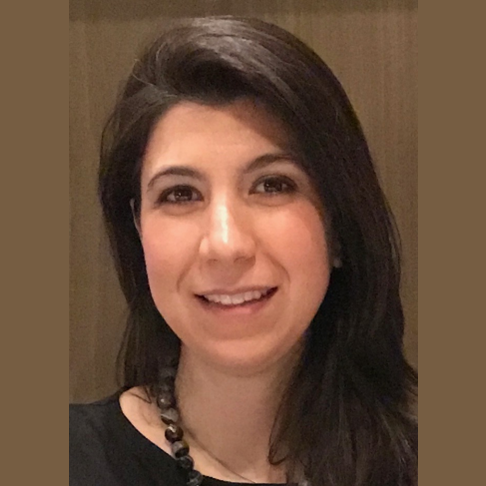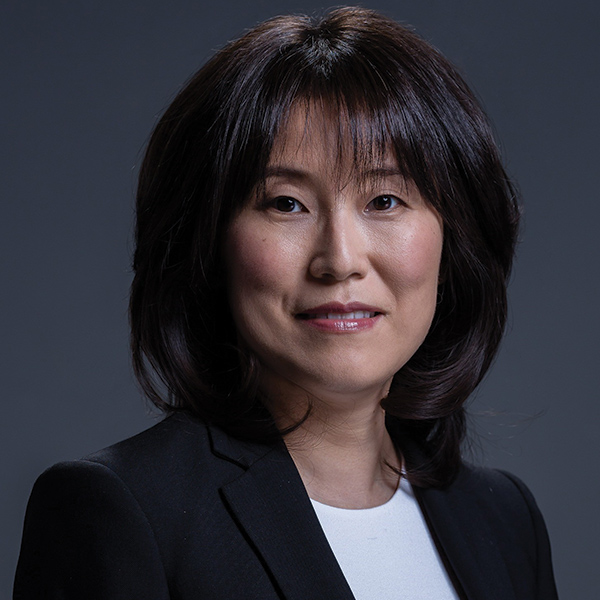The Challenges and Rewards of a Career in Electrophysiology

Derin Tugal, MD
I interviewed Derin Tugal, MD, a cardiac electrophysiologist at BMC, assistant professor of medicine at Boston University School of Medicine, and one of the very few practicing female electrophysiology (EP) operators in the country. Tugal and I both joined BMC as faculty in 2020, and I soon developed overwhelming respect for her capabilities.
Only about 5% of practicing EP operators in the U.S. are women, and Tugal is the first female electrophysiologist to be hired at BMC. As a clinical cardiologist and an AF researcher who believes in early rhythm control, I do not hesitate to refer my AF patients to Tugal, who quickly earned a reputation for exceptional clinical judgment and procedural skills. She is admired for her ability to stay calm under pressure and willingness to tackle challenging cases. Reading her clinical notes is akin to reading a mini book chapter on arrhythmias, filled with relevant patient history, pathophysiology, and a thought process that is imbued with science and compassion. And she does everything (including being a wife and a mother to two young children) with poise and a sense of calm. Therefore, it does not come as a surprise that despite our very different careers, Tugal quickly became my role model. I recently had a chance to sit down with her and discuss her career as a woman in EP. These are excerpts from our conversation.
What were some of your reasons for choosing EP as a subspecialty?
I was strongly attracted to EP early on in cardiology fellowship because it often requires real-time problem solving and you have to be very analytical in the way you identify a problem and generate a solution. I saw the opportunity to care for different types of patients in the clinic or hospital, including the young and healthy with curative arrhythmias and others with chronic electrophysiologic conditions whose care are individually tailored. It is a procedural field that requires a collaborative work environment where I am constantly learning from the people with whom I work.
And most importantly, I had excellent role models. Both my mother and my aunt immigrated from Turkey after completing their medical training and built successful practices in pediatric hematology-oncology and gastroenterology, respectively. They taught me no career was out of reach for women. When I was a cardiology fellow at University Hospitals Cleveland Medical Center, there were three female EP attendings, and they encouraged me to pursue a career in EP. They were successful, loved what they did, and showed me it was more than possible to be a practicing EP operator and take care of one's family.
What do you enjoy the most about your job?
It is quite gratifying to observe how much better my patients feel after EP procedures. Supraventricular tachycardia can often be cured with a single ablation. Patients with persistent AF can experience substantial improvement in symptoms after AF ablation and de-escalation in pharmacotherapy. Cardiac resynchronization therapy can be a game-changer for patients with heart failure. I also like EP because it often challenges me with tough cases. For example, I recently performed transhepatic pulmonary vein isolation in a patient with limited venous access. It was a collaboration with my imaging colleagues, interventional radiologists, and our EP support staff. Experiences like this challenge me clinically and remind me to not be complacent about my skills.
What is the most difficult challenge you have faced in your career?
My daughter was born during EP fellowship, and for the first few months after birth, she rarely slept at night. I was often sleep- deprived, which affected my performance. It was like being on call every night! In a competitive environment, surrounded by brilliant minds, it was bothersome to me that it took time for me to perform at the level I knew I could achieve. Fortunately, my fellowship program was supportive and patient with my adjustment to my new role as a mother. Also, I was not worried about radiation exposure during pregnancy as there were robust measures in my institution to minimize the risk. And I have been able to juggle a busy EP practice and family life because I have a very supportive spouse.
What are your career goals in the next 2-3 years?
I want to continue to grow my EP practice, keep up with the procedural skills and emerging technologies, and stay motivated to tackle challenging cases. I will continue to learn how to best manage my time. I do not think there is a right answer in achieving work-life balance. Every family is different. I want to make sure my spouse feels equally supported in his career and at home as I do, and my children to know how much I love them.

This article was written by Darae Ko, MD, MSc, FACC, a general cardiologist at BMC and Assistant Professor in Medicine at Boston University School of Medicine. Twitter: @darae_ko.
This content was developed independently from the content developed for ACC.org. This content was not reviewed by the American College of Cardiology (ACC) for medical accuracy and the content is provided on an "as is" basis. Inclusion on ACC.org does not constitute a guarantee or endorsement by the ACC and ACC makes no warranty that the content is accurate, complete or error-free. The content is not a substitute for personalized medical advice and is not intended to be used as the sole basis for making individualized medical or health-related decisions. Statements or opinions expressed in this content reflect the views of the authors and do not reflect the official policy of ACC.